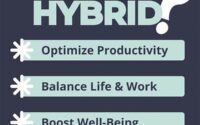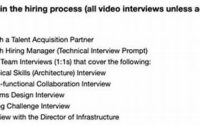From Full-time To Freelance: Transition Stories From 2025
- Navigating the New Frontier: Challenges and Triumphs in Freelancing
- Moving Towards Freedom: The Motivation Behind the Shift
- The Resilient Freelancer: Skills and Adaptability
- Embracing Change: The Psychological Shift
- Discussion Points: “From Full-Time to Freelance: Transition Stories from 2025”
- Unleashing Potential: Stories of Personal Growth
- Key Steps to a Successful Freelancing Career
As the world continues to evolve at a breakneck pace, the year 2025 promises to be a time of immense change, particularly in the world of work. The upheaval of traditional career paths is transforming the job market, with more individuals opting to transition from full-time positions to freelance careers. But what does this shift entail, and why are so many making this choice? As we delve into “From Full-Time to Freelance: Transition Stories from 2025,” we uncover not only personal stories but overarching trends that show a compelling picture of today’s dynamic workforce.
Read More : Quit Your 9-to-5: The Step-by-step Blueprint To Transitioning To Full-time Freelancing In 90 Days!
Imagine leaving behind a 9-to-5 routine, complete with its financial stability and predictable workflow, to embrace the flexibility and uncertainty of freelancing. For many, this transition is not just about escaping the confines of an office but stepping into a new world filled with opportunities for growth, diversity, and innovation. The narratives of those who have successfully made this switch are not only inspiring but also reveal significant insights into the motivations and challenges that come with this lifestyle change.
The popularity of freelance work has skyrocketed, primarily driven by the increasing accessibility of digital platforms that connect skilled professionals with global clients. Those shifting from full-time employment often cite reasons such as the desire for better quality of life, the pursuit of passion projects, and the need for more control over their work environment and schedules. As we explore these transition stories from 2025, we not only gain insights into individual experiences but also grasp how these changes are reshaping industries and economies worldwide.
The primary drivers behind this transition include technological advancements, changes in workforce demographics, and an increasing emphasis on work-life balance. For those seeking autonomy in their professional lives, freelancing offers an enticing alternative to the restrictive frameworks of traditional employment. In this ever-competitive landscape, freelancers adapt by continuously evolving their skills and leveraging technology to remain relevant and marketable.
Navigating the New Frontier: Challenges and Triumphs in Freelancing
The road from full-time to freelance is often paved with both challenges and triumphs. One common theme across transition stories from 2025 is the initial hurdle of financial insecurity. Unlike traditional employment where income is consistent, freelancers often find themselves navigating unpredictable income streams. Through careful financial planning and strategic client management, however, many overcome this barrier and find financial stability.
Additionally, transitioning to freelance work often means redefining success. It involves setting personal goals that align more closely with individual values rather than organizational metrics. Many who have made this leap report greater job satisfaction and an enriched sense of purpose. These stories serve as a testament to the resilience and adaptability of those who dare to step away from traditional career paths and forge their own unique journeys.
—
Moving Towards Freedom: The Motivation Behind the Shift
In the bustling world of 2025, the landscape of employment is shifting dramatically. More individuals are finding liberation through freelancing—a trend highlighted in “From Full-Time to Freelance: Transition Stories from 2025.” This movement towards freedom is fueled by a longing for autonomy and the ability to dictate one’s own working conditions and hours. The freedom to work from virtually anywhere is calling to those weary of conventional office settings.
The appeal is not merely about escaping the office grind; it’s about embracing lifestyle freedom. Freelancers enjoy the flexibility of choosing projects that resonate with their passions and professional values. Reports indicate that this flexibility leads to increased job satisfaction and personal fulfillment. However, the shift involves a trade-off—a steady paycheck for potential income variability and the responsibility of self-management.
The Resilient Freelancer: Skills and Adaptability
Transitioning to freelance work requires a unique set of skills and an adaptive mindset. In the competitive freelance market, professionals continually update their skills and expand their networks. Stories from 2025 illustrate how freelancers must become adept marketers, agile negotiators, and proficient self-advocates to thrive.
Freelancers are diverging into niche markets, leveraging their specialized skills in ways that enhance their value proposition. The emphasis on continuous learning cannot be understated; it remains critical for standing out among a sea of talented individuals. Success in freelancing is often attributed to a proactive approach towards skill acquisition and relationship building within one’s professional community.
Embracing Change: The Psychological Shift
The journey from full-time to freelance is as much a psychological transition as it is a professional one. Those who embrace freelancing report a sense of empowerment derived from the ability to choose their work engagements. They recount navigating initial fears of instability with resilient optimism. Adaptability becomes second nature as freelancers encounter diverse challenges that test their problem-solving skills.
Freelancers often highlight the emotional rewards of this lifestyle shift, including increased creativity and the joy of engaging in work that feels personally meaningful. Stories from 2025 reflect a conscious choice for many to prioritize mental and emotional well-being over the conventional metrics of career success.
—
Discussion Points: “From Full-Time to Freelance: Transition Stories from 2025”
- How can digital platforms better support freelancers in finding consistent work opportunities?
- What financial strategies are most effective for freelancers to manage income variability?
- How do freelancers maintain work-life balance without the structure of a traditional job?
- What role does continuous learning play in sustaining a successful freelance career?
- How can traditional employers incorporate freelance insights to improve employee satisfaction?
- What are the psychological impacts of transitioning from a stable job to the uncertainties of freelancing?
- How do cultural perceptions of freelancing evolve with increasing popularity?
- What measures can freelancers take to protect themselves legally and financially?
- How has the rise in freelancing impacted traditional industries and employment models?
- In what ways do freelancers contribute to innovation within their industries?
—
Unleashing Potential: Stories of Personal Growth
Shifting gears from the structured life of a full-time employee to the dynamic world of a freelancer is no small feat. It takes courage, vision, and a strategic plan. As highlighted in “From Full-Time to Freelance: Transition Stories from 2025,” many who’ve leaped report incredible personal growth, discovering uncharted territories of their potential. These stories are not mere exceptions; they are becoming a norm as more individuals decide to rewrite their narratives.
Friends and families often watch in awe as their loved ones transition into entrepreneurial roles, often acknowledging newfound strengths and talents that have emerged in the process. The unpredictability of it all adds a touch of excitement and offers a landscape where every day presents a new opportunity. Alongside personal stories, research indicates that freelancing can lead to enhanced skills in time management, negotiation, and self-marketing—abilities that hold value across any professional domain.
—
Key Steps to a Successful Freelancing Career
- Skill Up: Invest in continuous learning and development to stay competitive.
- Network Smart: Build meaningful connections within your industry for new opportunities.
- Market Yourself: Create a personal brand that reflects your unique skills and values.
- Plan Finances: Develop a solid financial strategy to manage income variability.
- Set Boundaries: Establish a work-life balance that suits your lifestyle preferences.
- Diversify Projects: Engage in a variety of projects to broaden your expertise and portfolio.
- Stay Organized: Utilize tools and systems that optimize productivity and time management.
In a world that thrives on innovation and flexibility, many are drawn to the gig economy, where independence and entrepreneurial spirit reign supreme. Embracing the freelance lifestyle means stepping into a world where you are both the boss and the employee, with freedom and responsibilities rolled into one. The journey isn’t straightforward, but with the right mindset and resources, freelancers can carve rewarding paths that align with both their professional and personal aspirations. From full-time to freelance: transition stories from 2025 inspire all who seek to redefine their careers and seek fulfillment beyond traditional employment boundaries.


